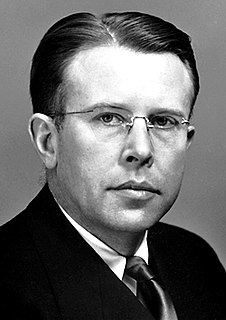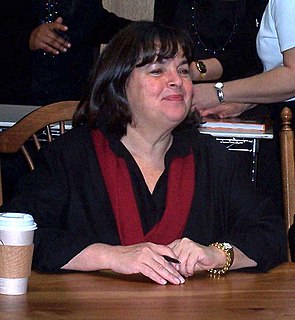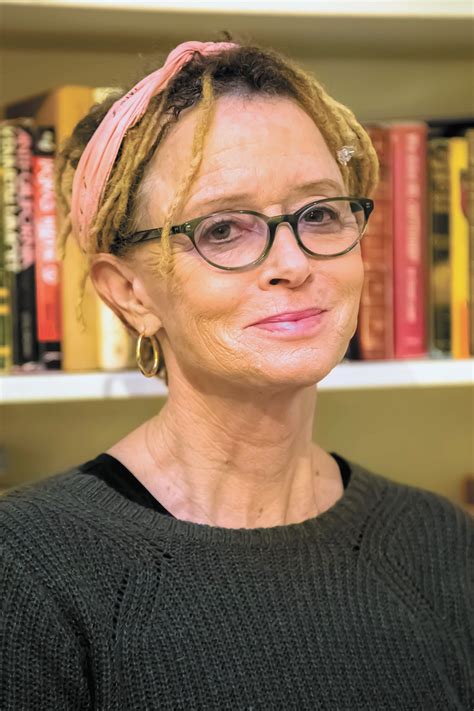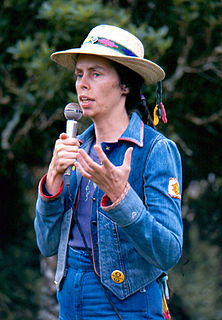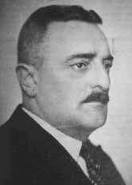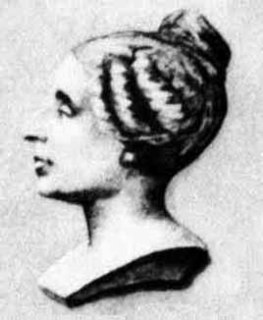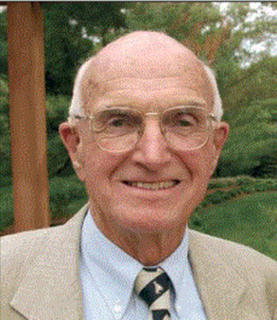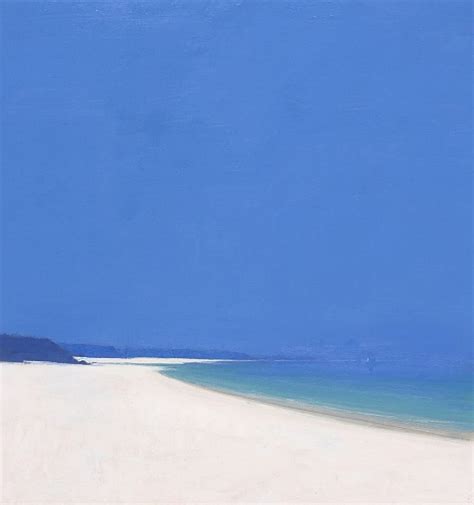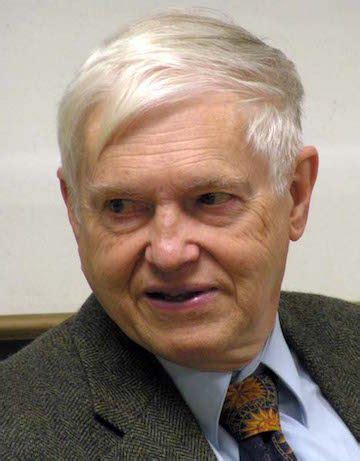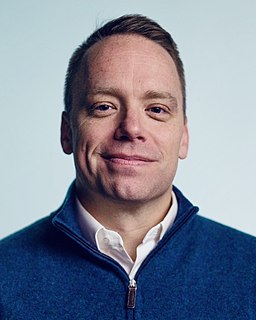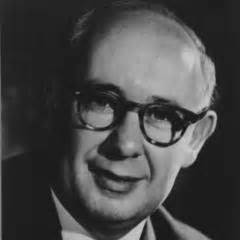Top 1200 Scientist Life Quotes & Sayings - Page 19
Explore popular Scientist Life quotes.
Last updated on December 4, 2024.
The world has changed far more in the past 100 years than in any other century in history. The reason is not political or economic but technological-technologies that flowed directly from advances in basic science. Clearly, no scientist better represents those advances than Albert Einstein: TIME's Person of the Century.
Perhaps if the year was 1447 instead of 1947 I might have hoodwinked my gentle nature by administering her some classical poison from a hollow agate, some tender philter of death. But in our middle-class nosy era it would not have come off the way it used to in the brocaded palaces of the past. Nowadays you have to be a scientist if you want to be a killer.
The day when the scientist, no matter how devoted, may make significant progress alone and without material help is past. This fact is most self-evident in our work. Instead of an attic with a few test tubes, bits of wire and odds and ends, the attack on the atomic nucleus has required the development and construction of great instruments on an engineering scale.
Strong, deeply rooted desire is the starting point of all achievement. Just as the electron is the last unit of matter discernible to the scientist. DESIRE is the seed of all achievement; the starting place, back of which there is nothing, or at least there is nothing of which we have any knowledge.
Certain signs, some of them visible to the layman as well as the scientist, indicate that we have been watching an ice age approach for some time without realizing what we are seeing... Scientists predict that it will cause great snows which the world has not seen since the last ice age thousands of years ago.
I am among those who think that science has great beauty. A scientist in his laboratory is not only a technician: he is also a child placed before natural phenomena which impress him like a fairy tale. We should not allow it to be believed that all scientific progress can be reduced to mechanisms, machines, gearings, even though such machinery has its own beauty.
At 5 years old, I saw 'Abbott and Costello Meet Frankenstein,' and I was so scared when Costello sat himself down in the lap of the monster, not realizing where he was. My friends teased me. They were older, 8 years old. And my goal was to become a mad scientist and get back at them. And here I am, mad as hell!
As a scientist, I cannot help feeling that all religions are on a tottering foundation . . . I am an infidel today. I do not believe what had been served to me to believe. I am a doubter, a questioner, a skeptic. When it can be proved to me that there is immortality, that there is resurrection beyond the gates of death, then will I believe. Until then, no.
When I was little, my parents really only wanted me to be a scientist or a doctor; they had never even heard of law school. I think even these days if you were to tell your mother you want to be a fashion designer, or an artist or a writer, a lot of Asian parents would be alarmed because they don't think that's a secure career.
I am a man and alive. For this reason I am a novelist. And, being a novelist, I consider myself superior to the saint, te scientist, the philosopher, and the poet, who are all great masters of different bits of man alive, but never get the whole hog....Only in the novel are all things given full play.
The natural scientist is concerned with a particular kind of phenomena ... he has to confine himself to that which is reproducible ... I do not claim that the reproducible by itself is more important than the unique. But I do claim that the unique exceeds the treatment by scientific method. Indeed it is the aim of this method to find and test natural laws.
The only ethical principle which has made science possible is that the truth shall be told all the time. If we do not penalize false statements made in error, we open up the way for false statements by intention. And a false statement of fact, made deliberately, is the most serious crime a scientist can commit.
I was always a mad scientist type - an inventor and just a generally inventive person, and that has remained the same. But one thing that *has* changed is that I've always been aggressively pro-business, with the mentality that whoever pays me, gets me - but now, I'd rather be broke than contribute to destroying the world my son is inheriting - both the social fabric, and obviously the environmental.
I think that when we know that we actually do live in uncertainty, then we ought to admit it; it is of great value to realize that we do not know the answers to different questions. This attitude of mind - this attitude of uncertainty - is vital to the scientist, and it is this attitude of mind which the student must first acquire.
It's not my fault Snow didn't have any other options coming out of high school. If going to college gets you a career backup goaltender job, and my route gets you a thousand points and a thousand games, and compare the two contracts, it doesn't take a rocket scientist to figure out whose decision was better.
Pregnant
and birthing mothers are elemental forces, in the same sense that
gravity, thunderstorms, earthquakes, and hurricanes are elemental
forces. In order to understand the laws of their energy flow, you have
to love and respect them for their magnificence at the same time that
you study them with the accuracy of a true scientist.
When a philosopher, scientist, or psychologist discusses the discrepancy between the actual and the ideal, he or she attempts to convince us with the tools of discursive thought ... An artist does it differently ... their primary approach is different, even though both groups, if you will, are investigating the actual, the ideal, and the discrepancy in between.
When asked about which scientist he'd like to meet, Neil deGrasse Tyson said, "Isaac Newton. No question about it. The smartest person ever to walk the face of this earth. The man was connected to the universe in spooky ways. He discovered the laws of motion, the laws of gravity, the laws of optics. Then he turned 26.
I feel that, in a sense, the writer knows nothing any longer. He has no moral stance. He offers the reader the contents of his own head, a set of options and imaginative alternatives. His role is that of a scientist, whether on safari or in his laboratory, faced with an unknown terrain or subject. All he can do is to devise various hypotheses and test them against the facts.
In describing the honourable mission I charged him with, M. Pernety informed me that he made my name known to you. This leads me to confess that I am not as completely unknown to you as you might believe, but that fearing the ridicule attached to a female scientist, I have previously taken the name of M. LeBlanc in communicating to you those notes that, no doubt, do not deserve the indulgence with which you have responded.
When I first went to Hubble, as an astronomer and as a scientist, it was a dream come true. And as an astronaut, the Hubble missions are premiere missions because Hubble is so important to science, so important to humanity, that it's just a very special event. But as an astronomer, it was sort of the holy grail of missions.
To be a scientist you have to be willing to live with uncertainty for a long time. Research scientists begin with a question and they take a decade or two to find an answer. Then the answer they get may not even answer the question they thought it would. You have to have a supple enough mind to be open to the possibility that the answer sometimes precedes the question itself.
... what the artist or creative scientist feels is not anxiety or fear; it is joy. I use the word in contrast to happiness or pleasure. The artist, at the moment of creating, does not experience gratification or satisfaction... Rather, it is joy, joy defined as the emotion that goes with heightened consciousness, the mood that accompanies the experience of actualizing one's own potentialities.
Is the Church inimical to science? Growing up as a Catholic and a scientist - I don't see it. One truth is revealed truth, the other is scientific truth. If you really believe that creation is good, there can be no harm in studying science. The more we learn about creation - the way it emerged - it just adds to the glory of God. Personally, I've never seen a conflict.
I have always believed that scientific research is another domain where a form of optimism is essential to success: I have yet to meet a successful scientist who lacks the ability to exaggerate the importance of what he or she is doing, and I believe that someone who lacks a delusional sense of significance will wilt in the face of repeated experiences of multiple small failures and rare successes, the fate of most researchers.
There's a lot of scientific data that I found out as a scientist that actually show that this is really a young Earth. I believe that the Earth is about 9,000 years old. I believe that it was created in six days as we know them. That's what the Bible says. And what I've come to learn is that it's the manufacturer's handbook, is what I call it. It ... teaches us how to run all our public policy.
A paradigm shift is the best a scientist can hope for. Whenever I smell an opportunity like that, I go after it. You have a new discovery that something's working in a different way than you thought. And this is particularly true in molecular and cell biology, which is structural biology and has the least potential for controversy and partisanship among the biological scientists. You're dealing with a concrete object that's either there or not there.
Creative experimentation propels our culture forward. That our stories of innovation tend to glorify the breakthroughs and edit out all the experimental mistakes doesn't mean that mistakes play a trivial role. As any artist or scientist knows, without some protected, even sacred space for mistakes, innovation would cease.
Philosophy and science have not always been friendly toward the idea of God, the reason being they are dedicated to the task of accounting for things and are impatient with anything that refuses to give an account of itself. The philosopher and the scientist will admit that there is much that they do not know; but that is quite another thing from admitting there is something which they can never know, which indeed they have no technique for discovering.
Must whales and dolphins be subjected to deafening noise that will cause more than 3.5 million instances of temporary and/or permanent hearing loss? For species that depend on hearing for survival - to find food, migrate, and communicate - any hearing loss could be catastrophic. As one scientist noted, a deaf whale is a dead whale.
I would be remiss, as a scientist who studied this, if I didn't mention the following two things: The first is that, most importantly, we need to do, as a society, in this country and globally, whatever we can to reduce population"....."Our whole economic system is based on growth, and growth of our population, and this economic madness has to end.
What the scientists have always found by physical experiment was an a priori orderliness of nature, or Universe always operating at an elegance level that made the discovering scientist's working hypotheses seem crude by comparison. The discovered reality made the scientists exploratory work seem relatively disorderly.
My practise as a scientist is atheistic. That is to say, when I set up an experiment I assume that no god, angel, or devil is going to interfere with its course; and this assumption has been justified by such success as I have achieved in my professional career. I should therefore be intellectually dishonest if I were not also atheistic in the affairs of the world. And I should be a coward if I did not state my theoretical views in public.
There were no pre-adamic men in the line of Adam... I am not a scientist. I do not profess to know anything but Jesus Christ, and him crucified, and the principles of his gospel. If, however, there are some things in the strata of the earth indicating there were men before Adam, they were not the ancestors of Adam.
The life of any one can by no means be changed after death; an evil life can in no wise be converted into a good life, or an infernal into an angelic life: because every spirit, from head to foot, is of the character of his love, and therefore, of his life; and to convert this life into its opposite, would be to destroy the spirit utterly.
Running is a way for me to relax. With one hour of intense running, I can get a lot of physical exercise. I can relax my body. I feel a tension in my muscles when I don't run. In that sense, I need to get out a few times a week in order to do my work as a scientist, which involves a lot of sitting still.
The scientist who recognizes God knows only the God of Newton. To him the God imagined by Laplace and Comte is wholly inadequate. He feels that God is in nature, that the orderly ways in which nature works are themselves the manifestations of God's will and purpose. Its laws are his orderly way of working.
Nevertheless, just as I believe that the Book of Scripture illumines the pathway to God, so I believe that the Book of Nature, with its astonishing details-the blade of grass, the Conus cedonulli, or the resonance levels of the carbon atom-also suggest a God of purpose and a God of design. And I think my belief makes me no less a scientist.
And the most interesting natural structure? A giant, two-thousand-mile-long fish in orbit around Jupiter, according to a reliable report in the Weekly World News. The photograph was very convincing, and I'm only surprised that more-reputable journals like New Scientist, or even just The Sun, haven't followed up with more details. We should be told.
The greater the scientist, the more he is impressed with his ignorance of reality, and the more he realizes that his laws and labels, descriptions and definitions, are the products of his own thought. They help him to use the world for purposes of his own devising rather than understand and explain it.
To the scientist Nature is a storehouse of facts, laws, processes; to the artist she is a storehouse of pictures; to the poet she is a storehouse of images, fancies, a source of inspiration; to the moralist she is a storehouse of precepts and parables; to all she may be a source of knowledge and joy.
If two scientists are giving their papers at a symposium, and one of them is just naturally better at talking to the public or talking to a group of people, that scientist is liable to get more attention - in fact, I'm told that they do get more attention - than the one who's a little more stiff about it. Well, that's not good for science.
When you start digging into things like character, though, the notion that people have high character or low character is very strong. What's crazy is that my thinking is not a new insight. The very first large-scale study of character, still one of the largest ever, was done in the early 1900s by Hugh Hartshorne, an ordained minister and a scientist.



